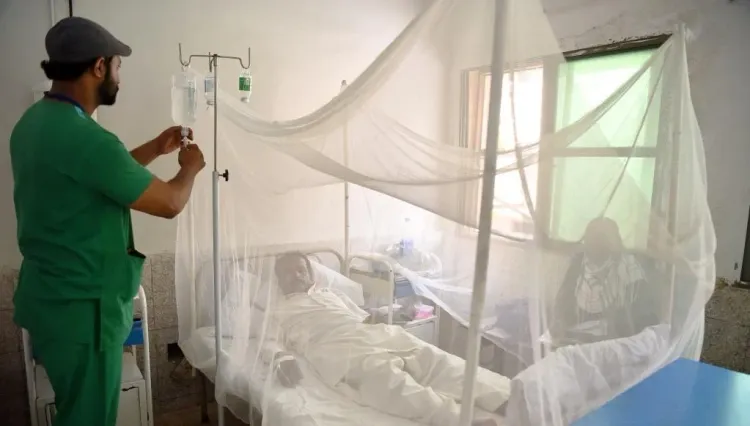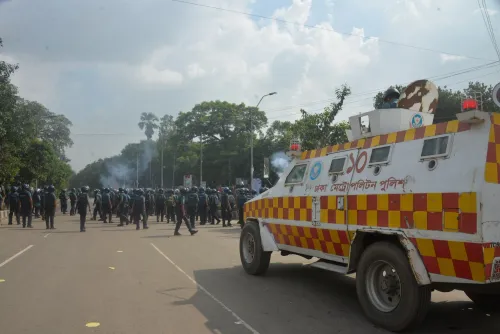What is the Current Dengue Death Toll in Sindh for 2025?

Synopsis
Key Takeaways
- 29 dengue-related deaths reported in Sindh for 2025.
- Over 13,900 total cases of dengue this year.
- Effective vector-control measures are urgently needed.
- Health officials call for a health emergency declaration.
- Public accountability is essential for better health outcomes.
Islamabad, Nov 13 (NationPress) Two additional women have succumbed to dengue fever in Karachi and Hyderabad, bringing the total fatalities in Pakistan's Sindh province to 29 for the year 2025, as reported by the provincial Health Department, local media disclosed on Thursday.
The Health Department indicated that one of the deceased resided in the Liaquatabad area of Karachi. In the past 24 hours, 5,412 tests were conducted across Sindh, with 976 individuals testing positive for dengue, according to Pakistan's prominent daily, Dawn.
In the Karachi division, 3,951 tests were performed, yielding 528 positive results. The Hyderabad division conducted 1,461 tests, resulting in 448 confirmed cases.
Health Secretary Rehan Baloch noted that 127 new dengue patients were admitted to government hospitals, and 84 were taken to private facilities within the last 24 hours.
Over the same period, 96 patients were discharged from government hospitals, while 79 were released from private hospitals after their recovery.
As of October, there have been 8,331 reported dengue cases in Sindh, elevating the cumulative total for 2025 to 13,908.
Currently, there are 269 patients receiving treatment in government hospitals, and 184 in private institutions across Sindh.
Last week, the Pakistan Medical Association (PMA) urged the government to declare a health emergency in the severely affected areas of Karachi and Hyderabad and to commence effective vector-control measures, as reported by Dawn.
The association called for an independent audit of Sindh's dengue prevention and control strategy and monitoring of municipal services to identify responsible officials for the worsening situation.
"The dengue crisis is a man-made disaster stemming from systemic dysfunction within government bodies. The absence of political commitment to ensure sanitation, waste management, and timely fumigation has turned our cities into breeding grounds for the Aedes mosquito. Each reported death serves as a testament to the failures of local government and the provincial Health Department," it stated. The PMA also criticized the delays and ineffectiveness of fumigation efforts and described the deteriorating state of municipal services.









